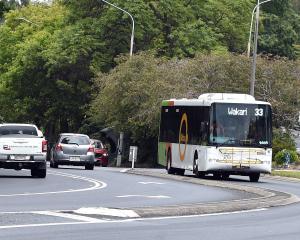Talking in plain language will be key for consulting the community, the leader of the project to make South Dunedin more resilient says.
Designing roads and parks to be floodable, elevating land, waterproofing the ground floor of buildings and restricting development in some areas have been identified as among the most promising approaches for shaping the area's future.
A long list of 16 possible approaches for helping the coastal low-lying urban area adapt to climate change was released this morning.
South Dunedin Future programme manager Jonathan Rowe said community engagement was a "really tricky thing" to get right, so plain language about the 16 possible approaches was important.
The council needed to work with residents and landlords to confront the issues head on.
"By consulting, we can hope to build trust and confidence and open up the conversation in people’s own spaces and on their terms."

People’s views might change when they had full understanding of factors like cost and risk levels, he said.
Understanding did not mean it was all going to be all right, but made the conversation more honest and likely to end up with an outcome aligned with what people wanted and needed.
"We are not sure where the journey is going to end up, but we want to get as many people along for the ride as possible."
South Dunedin was a diverse community and working to reach people of all ages and backgrounds was important, Mr Rowe said.
The area has a higher proportion of rentals than elsewhere in the city and the council had written to 1700 absentee landlords to engage them.
He said he felt there were differing moods in the community.
It seemed some residents were sick of the issue because it brought back memories of flooding in 2015, he said.
Others were nervous and wanted certainty and direction.
Others were new to the issue.












